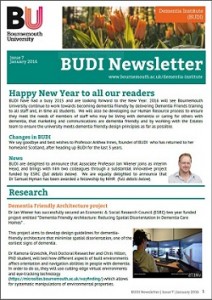
BUDI’s January 2016 Newsletter

Latest research and knowledge exchange news at Bournemouth University

The Royal Society of Biology are holding An Introduction to Exhibition Design training course on 10th March 2016, 10:00- 17:30 at The Royal Society of Biology, Charles Darwin House, 12 Roger Street, London, WC1N 2JU.
This is a practical day course for biologists involved in public engagement and outreach.
Who is it for?:
This practical course is suitable for those who may need to create a small display, for example:
– science communicators
– scientists working in public engagement & outreach
Creating an exhibition or small display can be a daunting task: they are a complex, multimedia format. How do you make sure your ideas are conveyed clearly? What is the best visual representation for this idea? What exhibits should I select? Using case studies and exercises, this course will introduce participants to exhibition making from the development of an exhibition concept to the final product.
Further information:
Dr Rachel Souhami has over 18 years’ experience of exhibition development, working with national and regional museums, independent organisations and exhibition design companies. Rachel has trained budding exhibition developers for ten years, and has lectured in science studies, museum studies and exhibition development at Imperial College, The University of Manchester and Westminster University. Rachel’s knowledge as a practitioner is enhanced by her research, which examines the working practices and design processes that lead to the successful implementation of an exhibition concept.
This event has been approved by the Royal Society of Biology for the purposes of CPD and can count as 18 CPD points.
For further information and to register your place at: https://www.rsb.org.uk/events/event_anintroductiontoexhibitiondesign
Civic Media Hack Day: Human Rights and Policing
Feb 9th 2016
10:00-16:00
W403 (Computer Lab, Weymouth House)
Open to all UG students, PG students, staff and the wider BU community. To register email: a.feigenbaum@bournemouth.ac.uk
On Tuesday February 9th Bournemouth University’s Civic Media Hub – Datalabs team will have a ‘Hack Day’ at Bournemouth University, pulling together news and human rights data to feed into an investigation for the Council of Europe’s Committee on Legal Affairs and Human Rights.
The Council and UN Special Rapporteur is looking for figures on death and serious injury from tear gas in member countries for their March 2016 policy meeting. Our Hack Day at BU stands to have a direct impact on European human rights policy-making, shaping the regulation of policing in member states. There will also be opportunities to write and pitch journalistic stories arising from the investigation, as well as for mapping data.
During the hack day, we will use investigative web searching, as well as basic data scraping techniques to aggregate and verify records of tear gas deaths and serious injuries in Council of Europe member states. This will involve, in particular, working with data and reliable sources from human rights reports, news organisations and medical institutions. If you are new to these methods, mentorship will be provided on the day – all welcome.
There will be a briefing on the task from 10:00-10:30. After that, you are welcome to come for all of the day or part of the day. It is also fine to pop in and out.
There will be lunch and refreshments provided throughout the day.
Please RSVP if you would like to attend by emailing a.feigenbaum@bournemouth.ac.uk
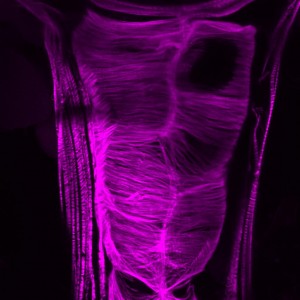
The heart of a fly. Two cells wide and capable of beating five times per second, the fly heart is helping us unlock the secrets governing our own heart’s function.
Research funded by the British Heart Foundation and conducted both here and at the Sanford-Burnham-Prebys Medical Discover Institute near San Diego in California, is to be published in the American Heart Association’s journal Circulation: Cardiovascular Genetics.
The work identified a genetic pathway linking cardiac function with expression of a protein called SPARC (Secreted Protein Acidic and Rich in Cysteine). In humans, increases in SPARC accompany cardiac ageing, inflammatory disease, obesity and cancer. As a consequence SPARC is a potentially very important therapeutic target in a wide range of important clinical settings. Our work, which utilised the fly Drosophila, demonstrated that heart dysfunction (cardiomyopathy) could be cured by reducing SPARC gene expression. Establishing this link allows us to ascertain the mechanism by which SPARC contributes to cardiac function in humans. Whilst the human heart is significantly more complex than that of a fly, their early development and function are controlled by similar genetic pathways; evolution may have added to the human heart but it has not changed its fundamentals. Hence, we’re able to learn a lot about ourselves by studying this simple, yet very sophisticated, little insect.
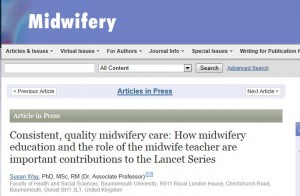 The forthcoming editorial in Midwifery (Elsevier) by FHSS’s Dr Susan Way highlights the importance of midwifery education and its educators.[1] This editorial makes reference to the recent series on midwifery in The Lancet.[2] Of course, midwifery plays a vital role in improving the quality of care of women and infants globally. Dr. Way reminds us that consistent, high-quality midwifery care has a vital role to play in the reduction of maternal and newborn mortality. Outcomes are enhanced when care is led by midwives who are educated, licensed, regulated, integrated in the health system, and working in interdisciplinary teams, with ready access to specialised care when needed.
The forthcoming editorial in Midwifery (Elsevier) by FHSS’s Dr Susan Way highlights the importance of midwifery education and its educators.[1] This editorial makes reference to the recent series on midwifery in The Lancet.[2] Of course, midwifery plays a vital role in improving the quality of care of women and infants globally. Dr. Way reminds us that consistent, high-quality midwifery care has a vital role to play in the reduction of maternal and newborn mortality. Outcomes are enhanced when care is led by midwives who are educated, licensed, regulated, integrated in the health system, and working in interdisciplinary teams, with ready access to specialised care when needed.
Midwifery one of the leading academic journals globally in the field of midwifery and maternity care. Dr.Way is based in the Centre for Midwifery, Maternal & Perinatal Health in FHSS at the Lansdowne Campus.
Congratulations!
Prof. Edwin van Teijlingen
CMMPH
References:
The Research Photography Competition is run annually and gives academics and postgraduate research students the chance to work alongside undergraduates to tell the story of their research in an image.
Voting is nearly over for the this Competition! We have had some great entries this years competition, ranging from images of Nepal to microscopic organisms.
If you would like to have your say on who wins, then you can either vote on the research website or on Facebook.
Please feel free to come along to the awards event which be will held on the 4th of February from 2pm till 3pm, where the winners will be announced by John Fletcher. (P.S There will be free food and drink!). All entries will be kept on display in the Atrium Art Gallery from the 4th of February for two weeks
If you would like to view the entries from last years competition, you can view them here.
If you have any questions about the competition or the exhibition, please contact Oliver Cooke.

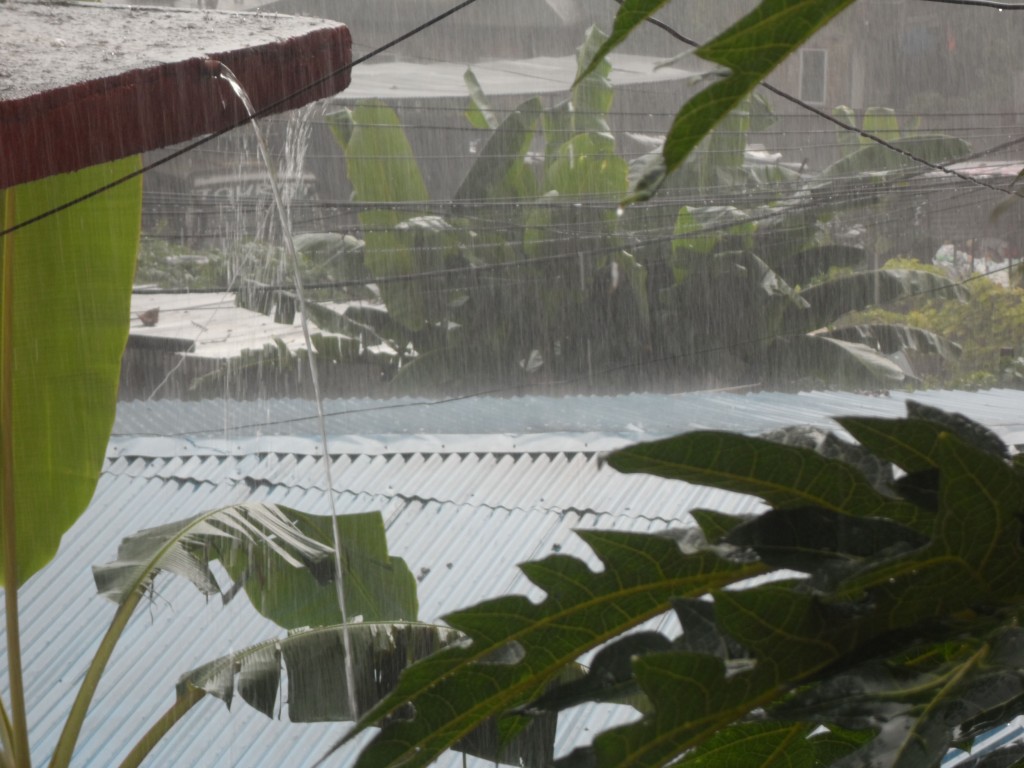
 The European IPR Helpdesk is running a number of webinars over the next few months and RKEO are promoting those relevant to EU Horizon 2020 activities.
The European IPR Helpdesk is running a number of webinars over the next few months and RKEO are promoting those relevant to EU Horizon 2020 activities.
10/2/16 9:30 AM Introduction to IP Location: TAG 03 – Talbot Campus
Duration: 60 minutes (presentation) + 15 minutes (Q&As)
2/3/16 9:30 AM IP in EU funded projects / H2020 Location: TAG 32 – Talbot Campus
Duration: 60 minutes (presentation) + 15 minutes (Q&As)
23/3/16 9:30 AM Technology Transfer Location: TAG 30 – Talbot Campus
Duration: 60 minutes (presentation) + 15 minutes (Q&As)
4/5/16 9:30 AM IP Management in H2020 with a special focus on Marie Sklodowska Curie Actions Location: P402 – Poole House Talbot Campus
Duration: 60 minutes (presentation) + 15 minutes (Q&As)
If you would like to attend any of these, please email Dianne Goodman stating which webinars you will attend. If they prove very popular, we may need to change the room, so pre-booking is essential.
A reminder that this two-day Systematic Review Masterclass will be taking place at the Executive Business Centre, Holdenhurst Road on 15 & 16 February.
One way of collating and assessing the best possible evidence is through a method called ‘systematic reviewing’. Systematic reviewing is a specific research method whereby a structured, rigorous, and objective approach is used to provide a critical synthesis of the available evidence on a particular topic. This masterclass will examine the rationale for systematic reviews and take participants through the various elements of a systematic review: selecting (electronic) databases; literature searching; data extraction; data synthesis; interpretation and reporting.
Booking price and information: The fee of £200 for this masterclass includes two full days with the course facilitators, all refreshments and all class materials. Accomodation and travel costs are not included.
Book your place now at http://www.eventbrite.co.uk/e/masterclass-systematic-review-2016-tickets-18954206542 . Places must be booked by 1 February 2016.
For further information please contact: Tel: 01202 962184 or email: epegrum@bournemouth.ac.uk
 RGS-IBG Annual Conference 2016: Nexus Thinking
RGS-IBG Annual Conference 2016: Nexus Thinking
London, 30th August – 2nd September 2016
CFP: Geographies of Religion and Spirituality: Beyond the ‘officially’ sacred
Session Convenor(s):
Jaeyeon Choe (Bournemouth University, UK)
Michael Di Giovine (West Chester University, US)
Michael Hitchcock (Goldsmiths, University of London, UK)
Michael O’ Regan (Bournemouth University, UK)
Religious spaces facilitate not only historical and traditional rituals and practices, but also social activities such as festivals, games, feasts, travel, sports as well as weddings and funerals (Chick, 1991). In greater and complex societies, religion has become secularized as religious options, personal choice and quests outweigh religious obligation (Graburn, 1983; Possamai, 2000; Turner & Turner, 1978). There has, for example, been increased participation in spiritual activities among tourists at pilgrimage sites (Timothy & Olsen, 2006). Whilst many of people at the sites are motivated by devotion, a large number of sites are shared by tourists and touristic processes. Indeed, many pilgrimage sites have often themselves become secularized (Di Giovine & Picard, 2015). Thus, the distinction between pilgrims and secular tourists has been diminishing, and “not only pilgrims not be easily separated out from secular tourists in this (post-) modern and ‘post-traditional’ age wherein sacrality is often divorced from pure religion” (D’Agostino & Vespasiano, 2000, p. 5). Pilgrims often “share many of the physical infrastructures and service providers as secular travelers…pilgrimage trails and destinations have been given new life through modern, secular tourism” (Di Giovine, 2011, p. 249). As such, pilgrims and tourists exist on a continuum of sacredness and secularity (Smith, 1992), and the distinction between tourism/pilgrimage, tourist/pilgrim, and secular/sacred is rather complex.
While there have been ongoing discussions about categorizing ‘pilgrims’ and/or ‘tourists,’ it is still challenging despite frequent attempts (Afferni, Ferrario & Mangano, 2011; Collins-Kreiner & Gatrell, 2006; Di Giovine, 2011; Poira, Butler & Airey, 2003; Sharpley, 2009). This panel session aims to recognize how religious spaces are central to the lives of pilgrims, and how these religious spaces have meanings to tourists. This panel also seeks to explore discourses on how the two groups experience, interpret, co-exist and perform religious space. Beyond the ‘officially sacred,’ this panel will explore the meanings of religious space to pilgrims and tourists so as to provide a blueprint for how work in the geography of religion and the field of religious tourism may move forward (Brace et al, 2006). We are inviting contributors with papers in the following areas (but not limited to):
– Pilgrim culture
– Pilgrimage and ritual
– Intersection of pilgrimage and heritage
– Pilgrimage and nationalism
– Popular vs. authorized pilgrimage movements
– Religious (space) tourism management
– Pilgrimage trails and destinations
– Trends/Motivations of spiritual tourists
– Conflicts between pilgrims and tourists at pilgrimage sites
– Religious/spiritual tourism and sustainability
– Religious tourism and regional development
– Future directions
Di Giovine, M., & Picard, D. (2015). The Seductions of Pilgrimage: Sacred Journeys Afar and Astray in the Western Religious Tradition, Surrey, UK: Ashgate.
Please submit abstracts to Jaeyeon Choe (jchoe@bournemouth.ac.uk) by 15th February 2016. Abstracts should be no more than 250 words and include your contact details.
Please see the following link for more details on the conference and registration details.
http://www.rgs.org/WhatsOn/ConferencesAndSeminars/Annual+International+Conference/Annual+international+conference.htm

Open access is about making the products of research freely accessible to all. It allows research to be disseminated quickly and widely, the research process to operate more efficiently, and increased use and understanding of research by business, government, charities and the wider public.
There are two complementary mechanisms for achieving open access to research.
The first mechanism is for authors to publish in open-access journals that do not receive income through reader subscriptions.
The second is for authors to deposit their refereed journal article in an open electronic archive.
These two mechanisms are often called the ‘gold’ and ‘green’ routes to open access:
Article first published – http://www.hefce.ac.uk/rsrch/oa/whatis/
To encourage all academic communities to consider open access publishing, Authors Alliance has produced a comprehensive ‘Understanding Open Access‘ guide which addresses common open access related questions and concerns and provides real-life strategies and tools that authors can use to work with publishers, institutions, and funders to make their works more widely accessible to all.
To access and download the guide, please follow this link – http://authorsalliance.org/wp-content/uploads/Documents/Guides/Authors%20Alliance%20-%20Understanding%20Open%20Access.pdf
For any other open access related queries, please do get in touch with Pengpeng Hatch (pphatch@bournemouth.ac.uk) at RKEO.
Parkinson’s UK have developed a new resource for researchers to help support them to engage with and involve people with Parkinson’s in their research in a meaningful way. The booklet was developed as a result of feedback from researchers who wanted support to understand what Patient and Public Involvement (PPI) means and how they can ensure its effectiveness in their work. While the toolkit has been developed by Parkinson’s UK, it has been designed to be applicable to different areas of research too.
The toolkit is available here. The booklet is a great resource and supports our existing PPI work, so we’d encourage you to take a look.
How does BU support Patient and Public Involvement?
Involving patients and members of the public in research is essential to ensure that our research remains relevant, acceptable and appropriate to those it aims to benefit.
Patient and public involvement (PPI) in research, both pre- and post-award, can add value to the research as patients are often the real experts on a condition they either live with or have experienced. For example, pre-award, patient and public views can inform the appropriateness of a research question, the recruitment strategy, outcome measures and dissemination plans for a research project. Once a project is funded, on-going PPI can help advise the research team on any challenges as it is delivered e.g. recruitment targets not being met.
Involving patients and the public in research is now mandatory for all National Institute for Health Research (NIHR) funding programmes, and an increasing importance is being placed on PPI by other funding bodies. Helen Allen, PPI lead in the Bournemouth University Clinical Research Unit (BUCRU) provides support and advice regarding how best to involve patients and the public both pre-award and throughout the delivery of a research project.
As examples, in BUCRU we have conducted PPI activities with:
Management researcher and adviser Dr Tim Breitbarth (Department of Sport & Physical Activity) provided the opening speech on trends in European higher education internationalisation policies, strategies and activities at a national higher education management congress in Cologne last week.
The one-day congress was attended by vice chancellors, pro-vice-chancellors (global engagement) and heads of international offices. In his 45-minutes speech, Tim covered topics such as the new competitive landscape of higher education and the role of internationalisation as a catalyst for overall reforms in a number of countries and also provided some guidance on change management.
Tim’s speech allowed subsequent discussions and other presenters to build upon, amongst which were a vice chancellor, the head of audit of the German Rectors’ Conference and the director of a higher education consultancy.
Last year, Tim was inaugurated for a 2-year term as an advisor to the German higher education sector as part of a EU-funded project of the German Ministry of Research and Education and the German Academic Exchange Service.
On Wednesday Jan. 27th CMMPH PhD student Preeti Mahato will present her PhD research ideas under the title “Addressing quality of care and equity of services available at birthing centres to improve maternal and neonatal health in western Nepal.” Her presentation will be held at the Lansdowne Campus at 13.00 in room 301 in Royal London House.
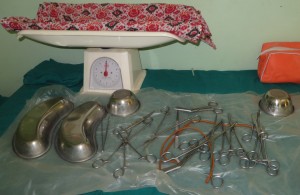 Preeti’s research focuses on birthing centres in western Nepal; and quality and equity of service available at these facilities. In Nepal, birthing centres act as first contact point for the women seeking maternity services especially the basic obstetric care. The focus of this presentation will be to talk about the first review article Preeti Mahato wrote for the ‘Journal of Asian Midwives’ entitled “Birthing centres in Nepal: Recent development, obstacles and opportunities”. The article has been accepted for publication in June 2016 and focuses on introducing birthing centres, their current state of operation under the health system of Nepal, barriers they are facing and what could be done to improve their present state. The quality of care issue available at birthing centre is emphasised, since the number of these facilities are increasing however there is a growing trend to bypass and uptake services at hospitals. Despite barriers to utilisation of services at birthing centres, they can play an important role in increasing institutional delivery rate and proportion of births benefiting from a skilled birth attendant.
Preeti’s research focuses on birthing centres in western Nepal; and quality and equity of service available at these facilities. In Nepal, birthing centres act as first contact point for the women seeking maternity services especially the basic obstetric care. The focus of this presentation will be to talk about the first review article Preeti Mahato wrote for the ‘Journal of Asian Midwives’ entitled “Birthing centres in Nepal: Recent development, obstacles and opportunities”. The article has been accepted for publication in June 2016 and focuses on introducing birthing centres, their current state of operation under the health system of Nepal, barriers they are facing and what could be done to improve their present state. The quality of care issue available at birthing centre is emphasised, since the number of these facilities are increasing however there is a growing trend to bypass and uptake services at hospitals. Despite barriers to utilisation of services at birthing centres, they can play an important role in increasing institutional delivery rate and proportion of births benefiting from a skilled birth attendant.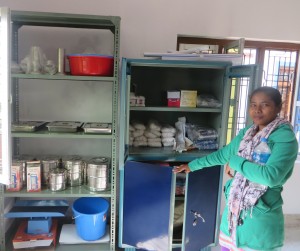
The second part of presentation will provide a brief summary on what Preeti has done since writing a review article, as she has worked on a systematic review on quality of basic obstetric care facilities in low and middle income countries.
Preeti Mahato has worked in the field of public health in Nepal for three years after completing her Master of Public Health. She has an interest in sexual and reproductive health, women’s health and maternal and child health. Working as a public health officer she was involved in maternal and neonatal health that developed her interest in pursuing a doctorate related to maternal and neonatal health. Part of her work in Nepal also included monitoring and supervision of birthing centres in rural areas of Nepal and that is how she became motivated to start a PhD at BU.
Prof. Edwin van Teijlingen
CMMPH
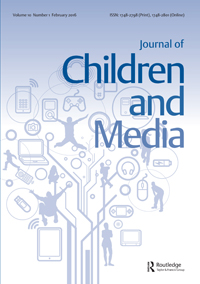 Bournemouth University’s Dr Ashley Woodfall and Dr Marketa Zezulkova have recently been published in the Special Anniversary Issue of the Journal of Children and Media. The journal is the most significant interdisciplinary one in the field of children and media, and the special issue features big-picture commentaries and analyses that address the challenges and opportunities facing children and media researchers.
Bournemouth University’s Dr Ashley Woodfall and Dr Marketa Zezulkova have recently been published in the Special Anniversary Issue of the Journal of Children and Media. The journal is the most significant interdisciplinary one in the field of children and media, and the special issue features big-picture commentaries and analyses that address the challenges and opportunities facing children and media researchers.
As the journal editorial states: Ashley Woodfall and Marketa Zezulkova focus on the lived media engagement of children as dialogic and holistic, requiring us “to recognise the child as entry point, centre and interpreter of their media experience and learning.”
The paper is available on an open access basis, funded by BU’s open access publication fund.
Woodfall A & Zezulkova M., 2016. What ‘children’ experience and ‘adults’ may overlook: phenomenological approaches to media practice, education and research. In: Journal of Children and Media. 10(1) 98-106.
You have until 31st January to submit your application to be get involved and run an event at the The Festival of Learning. That is less than a week away!
In its fourth year now -the dates for 2016 have been set as Saturday 25 – Wednesday 29 June for a shorter and more compact 5 day festival.
What kind of events could I put on?
We’re open to ideas and willing to support a wide variety of events, you could run anything from a professional development workshop to an art exhibition or you could just have a stool with some hands on activities for passers-by.
Some examples:
I’m keen to run an event! What do I do now?
You have until 31st January to submit your application to be considered as part of the festival of learning. Please click here to find the proposal form and instructions on how to submit. If you would like support in developing an event idea or for any further information then please get in touch with Naomi Kay (nkay@bournemouth.ac.uk), Public Engagement Officer.
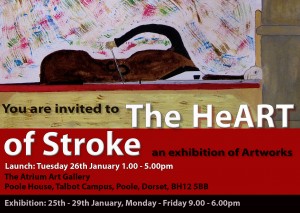
The artworks of stroke patients involved in a study to explore whether creative art can be used to increase confidence following a stroke will be on display at Bournemouth University (BU) throughout this week.
Depression is commonly experienced by stroke patients and the HeART of Stroke project was developed to find out if creative expression could improve the confidence and wellbeing of stroke survivors. Bournemouth University’s Dr Caroline Ellis-Hill led on the project, which was a collaboration between BU, the Royal Bournemouth and Christchurch Hospitals NHS Foundation Trust, University of East Anglia and Cambridgeshire Community Services.
The study was funded by the National Institute for Health Research (NIHR) Research for Patient Benefit (RfPB) programme as a feasibility project to look at the role of art based interventions in health care. Over the course of 14 weeks, people who had previously been treated at the Royal Bournemouth Hospital attended 10 creative workshops, facilitated by artists. Throughout the sessions, participants were encouraged to create their own piece of artwork as a means of exploring how their lives had changed as a consequence of their stroke and to develop a more outward facing view on life.
Marjorie Legg, who had a stroke not long after her husband passed away, took part in the study as she found that the stroke had affected both her mood and confidence. Commenting on her experiences, Marjorie said, “The stroke had stripped me of all confidence. I didn’t want to go out and do anything.
“I was a bit nervous about taking part in the workshops at first – I’d never been arty or drawn anything before in my life, but the workshops were fantastic and really built up my confidence. I now go on coach trips to see new places and have even enrolled in an local art class. The study has shown me there is life after stroke.”
Lead researcher, Dr Caroline-Ellis Hill said, “We are really encouraged by the results of the study and hope that it will lead to more in-depth research exploring the benefits of creative art for people following a stroke .
It is easy to lose a sense of self after a stroke and normal life can feel very strange, leading to a loss of confidence. We hope that further studies can be carried out to demonstrate the positive effects of Art and Health groups following a stroke , with the ultimate aim of seeing this kind of support available as a post-stroke intervention through our health and care systems.”
The exhibition will be on display in the Atrium Art Gallery between 9am and 6pm, 25 – 29 January, with members of the research team on hand to share more about their project.
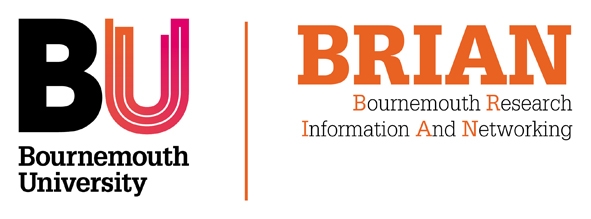
Following the recent BRIAN upgrade, we are happy to inform you that the system is now functioning as normal. In the unlikely event that you do encounter any problems following the upgrade, please do email BRIAN@bournemouth.ac.uk and a member of the team will be able to assist you.
We have also lined up a couple of BRIAN training dates in June and July. Please see details below:
28 Jan 2016 – 9.00am to 10.30am – S102, Studland House, Lansdowne Campus
24 Feb 2016 – 2.00pm to 3.30pm – C203, Christchurch House, Talbot Campus
16 Mar 2016 – 2.00pm to 3.30pm – S102, Studland House, Lansdowne Campus
5 April 2016 – 9.30am to 11.00am – C203, Christchurch House, Talbot Campus
25 May 2016 – 10.00am to 11.30am – S102, Studland House, Lansdowne Campus
Please get in touch with Organisational Development to book a place in this training. If you have further queries regarding this training, please get in touch with Pengpeng Hatch (01202 961354).
 On Friday January 22nd 2016 FHSS Prof. Edwin van Teijlingen delivered a keynote address at the Annual Research Conference of the Dutch Midwifery Schools. The Dutch name for the event is ‘conferentie kennispoort’, in English ‘conference knowledge portal’ OR in a slightly different translation ‘conference knowledge gate’. The presentation aimed to get midwives, maternity care researchers and midwifery students and others in the audience to think differently about the world in which they work / practise. Prof. Edwin van Teijlingen used notions of a social versus a medical model in his talk. These are based on a number of sociology and midwifery publications of this concept over the past decade.[1-4]
On Friday January 22nd 2016 FHSS Prof. Edwin van Teijlingen delivered a keynote address at the Annual Research Conference of the Dutch Midwifery Schools. The Dutch name for the event is ‘conferentie kennispoort’, in English ‘conference knowledge portal’ OR in a slightly different translation ‘conference knowledge gate’. The presentation aimed to get midwives, maternity care researchers and midwifery students and others in the audience to think differently about the world in which they work / practise. Prof. Edwin van Teijlingen used notions of a social versus a medical model in his talk. These are based on a number of sociology and midwifery publications of this concept over the past decade.[1-4] 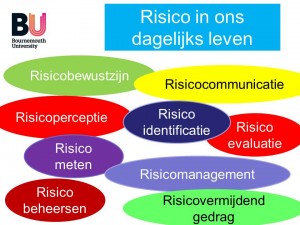
Sociologists recognise two different approaches or philosophies as first a social model and, secondly, a medical model of childbirth. The social model stresses that childbirth is a physiological event that takes place in most women’s lives. The medical model highlights that childbirth is potentially pathological (or risky). In the latter view every pregnant woman is potentially at risk, hence she should deliver her baby in an obstetric hospital with its high-technology screening equipment supervised by obstetricians, the experts when something goes seriously wrong in childbirth. In other words, pregnancy and childbirth are only safe in retrospect.
References: